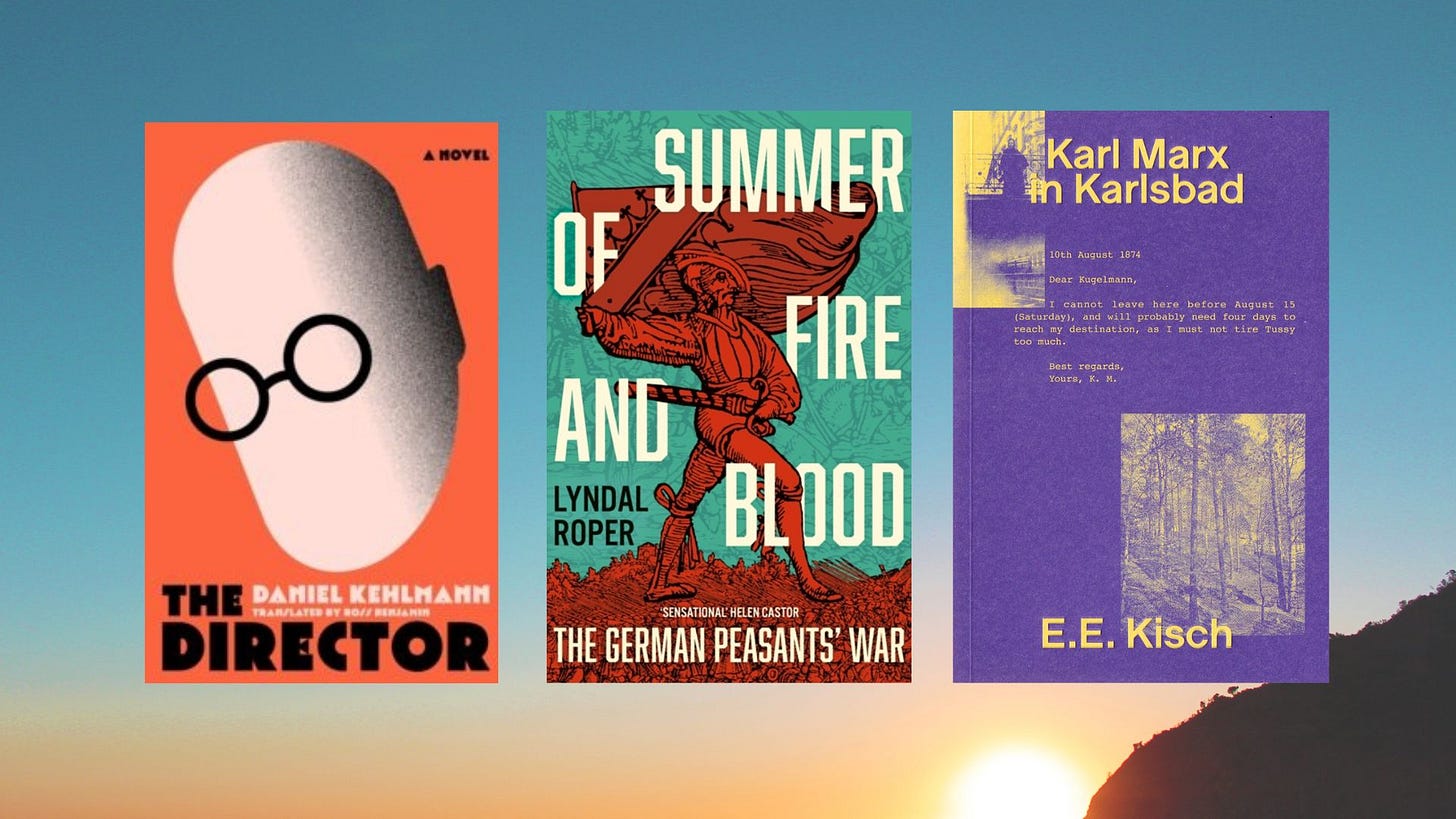RULES FOR BOOK REVIEWERS
1. Read the book twice: once as a reader then as a reviewer.
2. Don’t read the blurbs on the covers.
3. Don’t read other reviews.
4. Don’t review any book written with AI unless you use AI to review it.
5. If you aren’t being paid for writing the review, don’t underline passages or scrawl in the margins of the book. You can sell it later on Ebay.
These three books should get me through the heatwave. Then I’ll review them. In the meantime, some first impressions.
The Expressionist and Nazis
Daniel Kehlmann’s novel, The Director, fictionalises the career of Austrian Expressionist film director G.W. Pabst (1885-1967). Pabst moved to the USA in 1933 to try his hand in Hollywood, but left disillusioned after making just one film and moved on to France. When war broke out in 1939 Pabst was forced to leave France and go to Germany, which had absorbed Austria the previous year. Joseph Goebbels, who controlled the output of German cinema, had denounced Pabst’s anti-war war movie Westfront 1918 for ‘cowardly defeatism’; but he figured that allowing Pabst to make films could promote the idea that Nazi Germany’s barbarism didn’t mean it didn’t have ‘culture’. Pabst thought he could maintain his artistic integrity by making historical dramas, but he had to work under the auspices of Goebbels, who demanded that Pabst accept the Führerprinzip and atone for his leftist past. The artist’s pact with the Nazi Devil reduced his art to the art of complicity and complicity in art.
The Revolution 500 Years Ago this Summer
Lyndal Roper’s book Summer of Fire and Blood commemorates that year - 1525 - when massed peasant armies overturned the entire feudal system in Germany, only to be defeated and massacred by the forces of the princes. Roper tells the story of the War from the ground up, looking at what the peasants believed, how they lived, and why they fought.
The only other book I’ve read on the subject is Friedrich Engels’ classic of 1850, The Peasant War In Germany. Looking back 300 years, Engels saw in embryo the same forces - revolutionary and counter-revolutionary - which had emerged during the 1848 Revolutions. Luther was a proto bourgeois liberal: riding to power on a wave of popular protest, then making peace with the forces the people were protesting against. Thomas Müntzer’s ‘All Belongs to All’ movement was the communist forerunner of the ‘proletarian party.’ Roper is unconvinced by Engels assessment of Müntzer. Didn’t Müntzer apocalyptic prophecies lack a vision of a free society? Roper thinks the modern world can learn a lot from the 16th century peasants’ sense of ‘community’ - with each other and with ‘the fruits of air, land and sea’ in free ‘spiritual’ expression.
Marx and Tussy’s Adventures in Bohemia
Rab-Rab Press in Helsinki have translated Egon Erwin Kisch's Karl Marx in Karlsbad, written in 1946. Introduced by editor, Sezgin Boynik, with an afterword by Sam Dolbear and Hannah Proctor, this A6-size volume of 100 pages, beautifully designed by Ott Kagovere, would not look out of place in a gift shop.
In 1946 the Communisi Party of Czechoslovakia was celebrating the 70th anniversary of Marx's visit to the old German-speaking city of Karlsbad, now renamed Karlovy Vary. Journalist Egon Kisch (1885-1948) was assigned by the Party press to discover more about Marx’s visit and write about it.
In 1874, the spa resort of Bohemian Karlsbad was renowned for the curative effects of its thermal springs, attracting 'princes, ministers, aristocrats, chamber singers, order-hunters, soldiers of fortune. adventurers, spies, and courtesans'. And Into this exotic place, in August 1874, stepped the 56-year-old Karl Marx accompanied by his 19 -year-old daughter, Eleanor. Here begins Kisch’s detective story.




